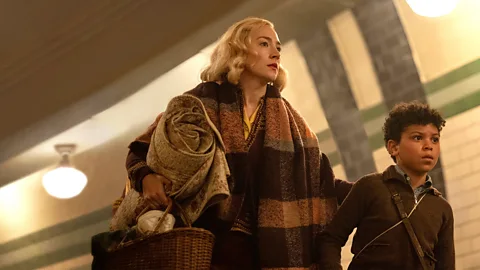 Apple TV
Apple TVPremiering at the London Film Festival, Steve McQueen’s sprawling drama tries to shine new light on what happened, but has “many of the clichés of a traditional period piece”.
As the director of the Oscar-winning 12 Years a Slave, Steve McQueen has proven himself to be an expert at approaching well-known historical horrors from revelatory new angles, and an expert at mixing mainstream thrills with the innovations that smack of his earlier career as a groundbreaking visual artist. That’s what he attempts again in Blitz, the opening film at the London Film Festival. A sprawling drama about the bombing of London by German planes in World War Two, it tries to show us afresh what it must have been like to endure such an ordeal – an ordeal which people are still enduring today – and it almost succeeds. Certainly, it has enough unique, inspired sequences to make it worth seeing. But Blitz doesn’t quite have the impact of 12 Years a Slave or some of McQueen’s other films (Hunger, Shame). One obvious difference is that 12 Years a Slave was based on an account of one person’s life, whereas Blitz appears to be based on a whole library of research material – too much material for the director, who also wrote the script, to boil down into a gripping narrative with a consistent tone.
Its hero is George (Elliott Heffernan), a nine-year-old mixed-race boy who lives in the working-class east end of London with his white mother, Rita, played by Saoirse Ronan, and his grandad, played by rock ‘n’ roll legend Paul Weller. (He’s competent enough, but I can think of 20 proper actors off the top of my head who would have done a better job.) In September 1940, George’s family decides that it’s not safe for him to stay with them any longer, and that he has to join the many evacuees who are packed onto trains to the countryside. But George has other ideas, jumping off the train and making his way back to London. But travelling alone across the capital would be risky enough for a nine year old at any time. At a time when bombs are dropping, it’s far more dangerous.
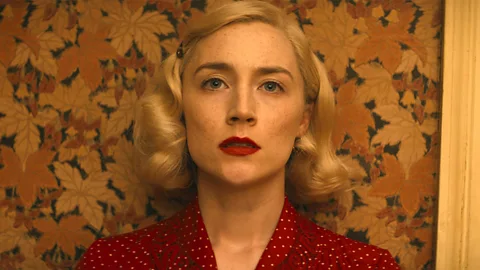 Apple TV
Apple TVThe most surprising thing about Blitz is that parts of it could have come from an old-fashioned children’s adventure movie, a rollicking yarn that might have been on television on a Bank Holiday afternoon. It has some iffy child-acting, some tear-jerking sentimentality and many of the clichés of a traditional period drama: the spotless pubs and houses that look as if they’ve been rebuilt in a museum, the immaculately clean and perfectly fitting clothes that so many people wear. In short, it doesn’t ring true. There’s nothing wrong with that kind of rousing family entertainment, mind you, but it needs a conventionally gripping plot to go with the conventional trappings, and McQueen can’t settle on one.
Sometimes, Blitz is a dark Dickensian tale with Stephen Graham and Kathy Burke as a grotesque pair of looters. Sometimes it’s a feelgood feminist yarn about plucky women standing up for themselves in a munitions factory. And sometimes, when it’s at its nerve-shredding best, it’s a stark depiction of a situation in which death could strike at any moment. But it’s more like a scrapbook, or an anthology of wartime reminiscences, than a fully realised film. Regularly yanking the viewer away from George’s perilous journey with superfluous flashbacks, polished political speeches and even a couple of extended musical numbers, it has too many scenes which don’t connect to anything else in the film, and too many characters who are sketchily drawn then tossed aside. Harris Dickinson mopes around in the background as an ARP warden who carries a torch for Rita, and Hayley Squires is a standard-issue cockney sparrow. They both deserve better. Not even George develops much of a personality, and Ronan, stunning chameleonic talent that she is, has little to do except wander through London, gazing silently at various tableaux that haven’t been integrated into the plot.
BLITZ
Cast: Saoirse Ronan, Elliott Heffernan, Paul Weller, Harris Dickinson, Hayley Squires
If McQueen is unsure of which story he really wants to tell, or which tone he is going for, he is undoubtedly sure of one point he wants to make, which is about London’s racial diversity at the time. Considering how much whitewashing there has been in World War Two films over the decades, that’s a point worth making. But, as with everything else in Blitz, McQueen hasn’t homed in on the most powerful way to do it. A chronicle of the racism faced by George on his travels might have hit hard, but the message is repeated, with less and less subtlety, in numerous settings featuring numerous characters, until the viewer stops being immersed in a mother and son’s desperate plight, and starts to feel as if they are in a lecture theatre being told a host of anecdotes instead. The film is interesting and informative, but all those bomb blasts don’t leave you as shaken as they should.





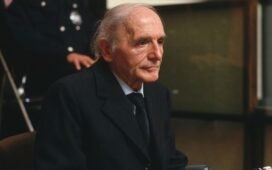
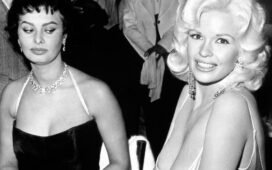
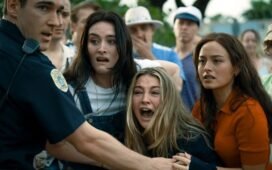

Recent Comments